Santosh K Verma
It is a matter of estimation of how the new Pakistani government shows commitment to regional peace amidst the constant pressures of China, but India needs to be ready to deal with any situation
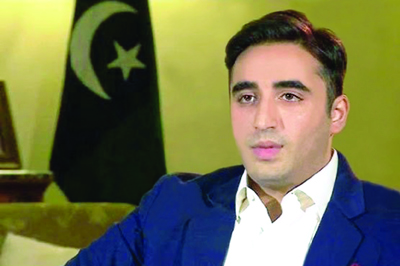
General elections in Pakistan’s faltering democracy are not less than any great event. Since the first elections held in 1970, the army’s interference in civilian governments, rigged elections, military dictatorships and the things which prevail in a feudal society have remained constant till today. In the 71 years of independence, the people of Pakistan have undergone 35 years of military rule and dictatorship. Only twice, the Prime Ministers completed their five-year terms. In 71 years, governments were formed 13 times and 18 people became Prime Ministers 22 times.
About 460 million young voters, out of the eligible 1050 million voters (out of which 1.77 crore voters are between 18 and 25 years old), are to vote in the general elections to be held on July 25. According to the figures given on the website of Pakistan Election Commission, in the six provinces of Pakistan, the names of 5.92 million men and 4.77 million women are included in the electoral rolls. This time, the number of women voters is less than 1.25 crore as compared to that of the men. A total of 91 lakh women will vote for the first time in this election. There are a total of 342 seats in the National Assembly. Of these, 272 are filled by direct elections. In addition, the Pakistan constitution reserves 10 seats for religious minorities and 60 seats for women, to be filled by proportional representation among parties with more than 5 per cent of the vote.
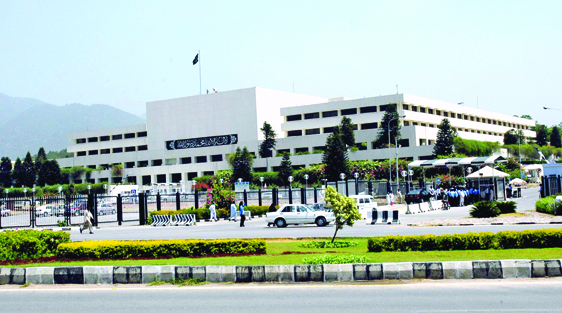
Former Prime Minister Nawaz Sharif’s Pakistan Muslim League-N (PML-N), cricketer turned leader Imran Khan’s Pakistan Tehreek-e-Insaf (PTI) and former President Asif Ali Zardari’s Pakistan People’s Party (PPP) are to face a triangular contest. Apart from this, Islamic parties of Pakistan are again in the fray under the banner of Muttahida Majlis-e-Amal. The political party of terrorist leader Hafiz Saeed, the Milli Muslim League, which has not received registration from the Election Commission, is also ready to contest under the banner of another lesser known political outfit ‘Allaaho Akbar Tehrik’.
“Election Commission of Pakistan has completely ignored the Sections 62 and 63 of the Constitution during the scrutiny of the candidates. Robbers will be part of the next Pakistani Parliament. Therefore, we are boycotting the elections and will continue the struggle against the corrupt system”
— Tahirul Qadri, head of Pakistan Awami Tehrik and Muslim Cleric
— Tahirul Qadri, head of Pakistan Awami Tehrik and Muslim Cleric
Innovations in these Elections
This election in Pakistan is different in many ways than the former ones. Information revolution in Pakistan is also ready to play its part in the democratic process. Election analysts believe that this time youths, who use social media, will play a decisive role in formation of the government in the sixth most populous country.
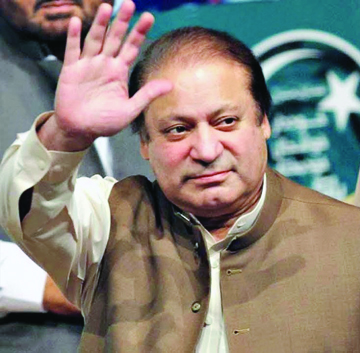
This time many changes have been made in the wake of elections. The Election Commission has recently taken an unprecedented step and decided to deploy the army within the polling booth for the first time. Now, under another new change, every political party in Pakistan has been mandated to give tickets to at least 5 per cent of women on general seats. This compulsion has been made under the 2017 Election Act. At the same time, another step has been taken by Pakistan Election Commission to increase the participation of women in voting, under which, if the vote percentage of women is less than 10 at any seat, the election can be held again there.
In the election, a total of 21,482 candidates have been enrolled, including 436 women and two Transgenders. This time fewer candidates have filled the form than the last general election. In 2013, a total of 28,302 candidates had filed nominations. The highest number of 231 women is contesting from Punjab province. Although, this number may increase, since the list has not yet been finalised by the parties. It is notable that the situation of women in Pakistan is very bad, but the presence of women representatives in Parliament is comparatively better.
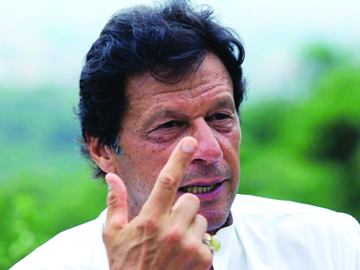
Money must Prevail!
Pakistan remains the largest flag bearer of feudalism in the 21st century. The large population is deprived of the basic amenities. On the other hand, there is a large section that still enjoys all rights without any liability. This is the Mehboob ul Haq’s extended version of the famous ‘22 families’ of 1960s. An independent candidate has surprised everyone after declaring assets worth around 403 billion. Mohammad Hussein Sheikh who owns nearly 40 per cent of the land in Muzaffargarh town, will contest for the National Assembly from Muzaffargarh’s NA-182 and PP-270 seats. In addition, he has hundred crore of acres of land in Lang Malana, Talrii, Chak Talree and Latakaran areas. Pakistan Muslim League-Nawaz leader Miriam Nawaz Sharif and Pakistan People’s Party leader Bilawal Bhutto Zardari and Asif Ali Zardari have also declared assets worth billions of rupees.
Terrorists in the Election?
In spite of being a non-registered party, Milli Muslim League (MML), the political face of banned terrorist outfit, Jamaat-ud-Dawah, has been successful to launch its candidates in general elections of Pakistan. This organisation is spearheaded by the mastermind of terrorist attacks in Mumbai in 2008, Hafiz Saeed. MML has tied up with an inactive but registered party, Allah-O-Akbar Tehrik (AAT). The AAT has given tickets to 265 candidates of MML for the general elections. MML candidates include Hafiz Saeed’s son Hafiz Talha Saeed and son-in-law Khalid Walid. Contesting the election by MML not only shows the flaws in the working of Pakistan Election Commission, but also in the Interior Ministry. The Commission and the Ministry had refused to register Saeed’s party because its leaders and members belong to the banned terrorist group. On the other hand, AAT president Ehsan Bari has clearly denied having any alliance with any group or party and has said that he has distributed 300 tickets. He said, “MML has announced to support our candidates”!
Corruption: Basic Element of Pak-Politics!
The head of Pakistan Awami Tehrik and Muslim cleric Tahirul Qadri said that the Election Commission of Pakistan completely ignored sections 62 and 63 of the Constitution during the examination of the candidates. (These are the articles of the Constitution, which mention “Sadiq and Amin” and under which Nawaz Sharif has been banned lifelong from contesting the election). Qadri pointed out serious allegations that money launderers, mass murderers, accused of corruption and human trafficking and persons with other serious charges have been allowed to contest elections. He said “Such robbers will be part of the next Pakistani Parliament. He further said therefore, we are boycotting the elections and will continue the struggle against the corrupt system.”
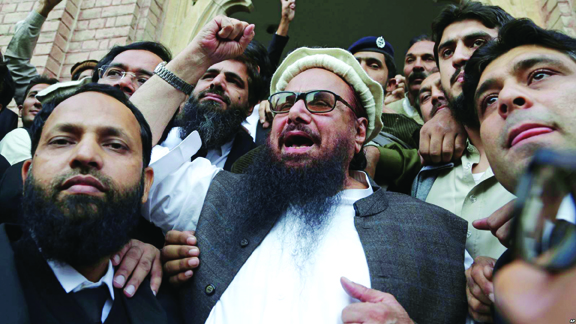
Possible Post Poll Scenario
According to Pakistan Election Commission, on the last day of nomination, 12,000 nomination papers were filed up (till June 11). There are a total of 342 seats in the Parliament, so 172 seats will be required to form the government. However, knowledgeable people of Pakistan’s politics believe that no party will get full majority. In such a scenario, if the arch rival political parties PTI, led by Imran Khan and PPP led by Bilawal Bhutto together get more than two-thirds majority, they can join hands. Last time, Nawaz Sharif’s party PML-N got six seats short of simple majority. Nawaz Sharif formed the government with the help of 19 Independents.
Apart from this, some Islamic parties such as Jamaat-e-Islami and Jamiat-i-Ulema-e-Pakistan (F) can move towards party or coalition near to power. And in the current scenario, Imran Khan seems to be the most suitable for them. AAT (MML’s new disguise) will run the controversial, radical and anti-India election campaign of Jamaat and Falah-e-Insaiahat founder Hafiz Saeed. Their political base is selling dreams to establishment of a dominion of fundamentalist Islam in Pakistan and perpetual hostility towards India. But by the performances in the last few by-elections by the MML and Tehreek-e-Labaik Ya Rasool Allah (TLY) it is estimated that they may capture a small chunk of votes, but more than winning the seats, they may be able to reverse some of the electoral calculations in some constituencies particularly in Punjab, KP and FATA.
India’s opposition and rancour has become an important parameter for the validity of Pakistan’s creation and existence; therefore, it becomes a major issue for the election campaign for any political party in Pakistan. But the need, desire and skill of the government to smoothly transmit bilateral relations are able to make it somewhat shaky, which is obviously influenced by the ruling party’s political needs.
In the present scenario, it appears that Pakistan’s army and China are hopeful of the victory of Imran Khan and such a situation is worrying for India. The efforts of Pakistan Muslim League and Nawaz Sharif to improve relations with India have been sabotaged on many occasions. It is a matter of estimation of how the new Pakistani government shows commitment to regional peace amidst the constant pressures of China, but India needs to be ready to deal with any situation.
(The writer is a regular follower of Pakistan Media)



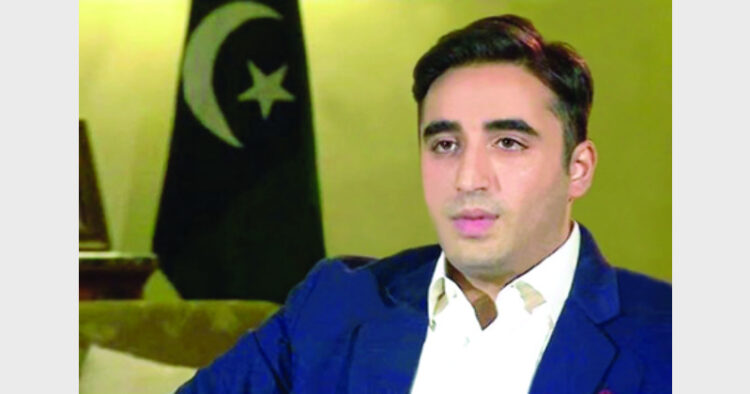










Comments